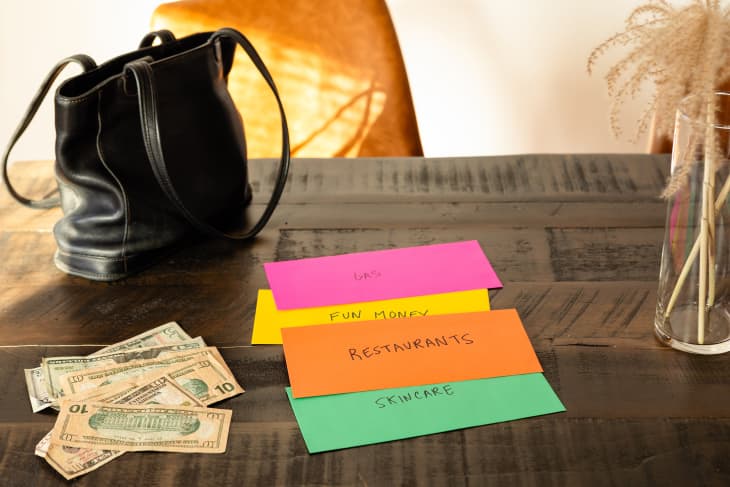The Best Money-Saving Advice I Got from My Grandparents

There are endless amounts of personal finance tips and tricks out there, making it easy to become overwhelmed by all the wisdom—and frustrated when budgets don’t balance according to plan.
While lots of tried-and-true advice has graced the virtual pages of Apartment Therapy’s personal finance section, I decided to distill the advice of two people I’ve known for a very long time: my grandparents. They’ve been around the block, so to speak, and have a no-nonsense approach to many things, including their finances. Here’s some of the best money-saving advice I got from two frugal people I will refer to here as Grammy and Grampy.
Try the envelope system
An envelope system of budgeting requires you to put designated amounts of cash into labeled envelopes. It’s a method my grandparents used a lot when they were younger.
“We had a little budget book with envelopes in it. I just put money in them each week, about how much we figured we needed,” my Grammy tells me. “If we had anything leftover, it was gravy.”
As an outspoken advocate for budget spreadsheets, counting out money to tuck into paper pouches feels old-timey (and a little clunky) to me. But that’s the point, my grandparents say. Having physical money in front of you—divided up into categories, no less—helps you visualize how much money you have and where it’s going.
Start saving early—very early
Grampy says it’s imperative to build savings early on in life, especially when it comes to saving for retirement.
“I started when I was 30,” he says. “A lot of the other guys said, ‘Ah, I’ll do that when I get older.’ A lot of them didn’t do it when they got older. They had other things to do. By the time they decided to do it, they weren’t doing as well as someone who decided to save a long time ago.”
This does feel like a bit of a humble brag, but it’s still solid advice. He also recommends taking full advantage of retirement matching plans from your employer, if they offer them. So, having your employer match your retirement contributions when you’re young can only help in the long run.
“When you’re 30, somebody who’s 40 is ancient,” Grampy reasons. “The next thing you know, you’re 50 and you don’t know where 40 went.”
Set up automatic withdrawals to a savings account
The only thing harder than saving up a lot of money is remembering to sock away extra money in the first place. It’s not worth scheduling times to go to the bank (or to make money transfers online), Grampy says.
“If you have cash at home and you have to go and put it into your savings account, a lot of times you won’t make it,” he says. “You’ll use it for something else you want to spend it on.”
That’s why automating your savings is so effective. By setting up recurring withdrawals into a separate account, the work of “saving” will be done without you even thinking about it.
Bank with a credit union instead of a commercial bank
A credit union is a non-profit institution owned by its members. Instead of a bank, which does turn a profit, a credit union acts as a cooperative, where one member’s savings, for example, could serve as another member’s loan. It can be advantageous to bank with a credit union (as opposed to a commercial bank) for many reasons, one of which is strong interest rates on checking accounts.
My grandparents say they’ve received better interest rates on loans with credit unions. And the numbers back this up: Credit union loan interest rates tend to be lower, and there are often fewer fees associated with transactions there. A lower interest rate, of course, means saving money over the course of the loan.
Actually put a limit on extras
I like to pride myself on not taking the “treat yourself” mentality too far. But I don’t have a set limit on the amount of money I spend on entertainment or dining out, and that could certainly cause problems if I’m not careful. Grammy recommends putting a cap on the amount of spending you do on “extras” and sticking to it.